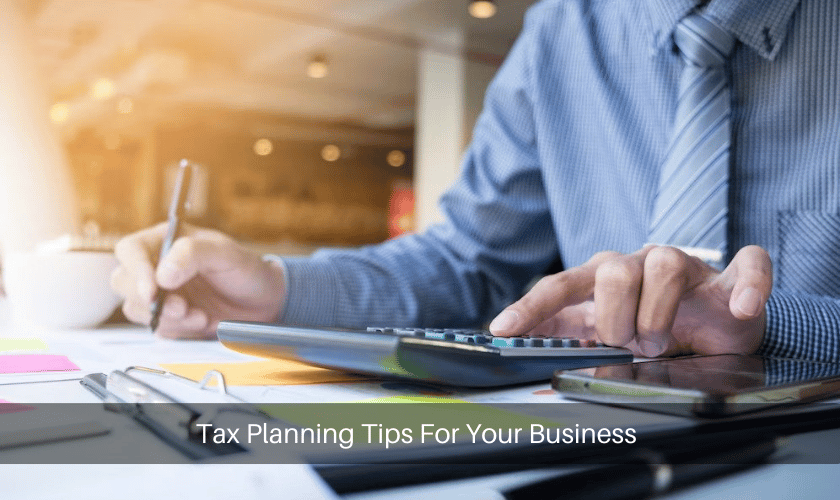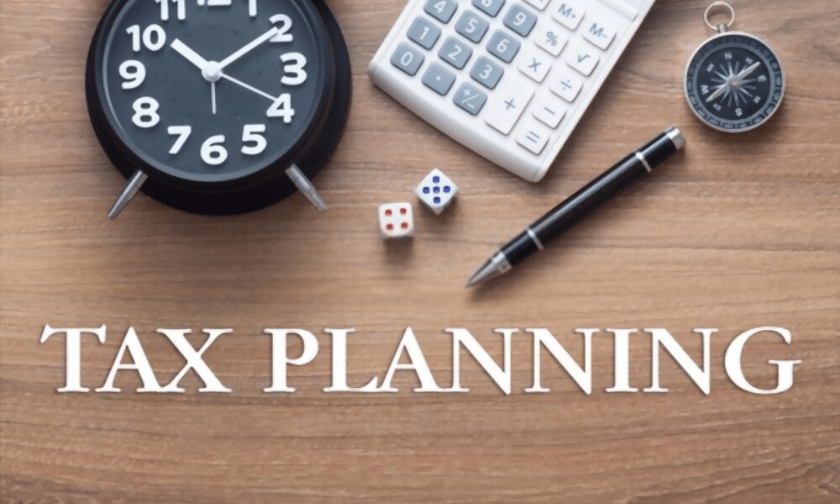7 Essential Tax Planning Strategies for Small Business Owners

7 Essential Tax Planning Strategies for Small Business Owners
Attention all small business owners! It’s that time of the year when you need to gear up and start planning ahead for tax season. Yes, we know taxes can be a dreaded subject but they’re an essential part of running a successful business. In this blog post, we’ll walk you through seven key tax planning strategies that will not only save you money but also help you stay organized and compliant with the ever-changing tax laws.
As a small business owner, you are likely always looking for ways to save money and reduce your taxes. While there are many tax deductions and credits available to small businesses, some planning is required to take advantage of them.
7 Tax Planning Strategies for Business Owners
As a business owner, it’s critical to understand the tax implications of your decisions. The right tax planning strategy can save you thousands of dollars each year.
#1 Understand Your Business Structure
If you are a small business owner, it is essential to understand your business structure in order to make informed decisions when it comes to tax planning. There are three common business structures: sole proprietorship, partnership, and corporation.
A sole proprietorship is a business owned and operated by one person. This structure is the simplest and most common type of small business. A partnership is a business owned by two or more people. Partnerships can be either general partnerships or limited partnerships. A corporation is a legal entity that is separate from its owners. Corporations can be either for-profit or non-profit.
Each type of business structure has different tax implications. Sole proprietorships are taxed as personal income, partnerships are taxed as pass-through entities, and corporations are taxed as separate legal entities. It is important to consult with a tax advisor to determine which type of business structure is best for your situation.
#2 Take Advantage of Tax Credits and Deductions
As a small business owner, it’s important to take advantage of every tax credit and deduction available to you. Doing so can help reduce your overall tax liability, freeing up more money to invest back into your business.
There are a number of different tax credits and deductions available to small businesses, so do your research to see which ones apply to your business. Some common examples include the Small Business Health Care Tax Credit, the Home Office Deduction, and the Self-Employment Tax Deduction.
Take some time to speak with your accountant or financial advisor to ensure you are taking advantage of all the tax breaks available to you. By doing so, you can save yourself a significant amount of money come tax time.
#3 Keep Track of All Expenses
If you’re a small business owner, one of the most important things you can do to minimize your tax burden is to keep track of all your expenses. This includes both business and personal expenses.
Business expenses can be deducted from your taxable income, which can save you a significant amount of money come tax time. But if you don’t keep track of your expenses, you may not be able to take full advantage of all the deductions you’re entitled to.
personal expenses are not deductible, but it’s still important to track them so you have a clear picture of where your money is going. This can help you make better financial decisions overall.
There are a variety of ways to keep track of your expenses. You can use paper and pencil, or opt for a more sophisticated method like using accounting software or a tracking app. Whichever system you choose, just make sure it’s one that works for you and that you’ll actually stick with over time.
#4 Utilize Retirement Accounts Strategically
If you have a retirement account through your small business, you can utilize it to help lower your tax bill. By contributing to a retirement account, you can deduct the contribution from your taxable income. This reduces the amount of taxes you owe and can help you save money in the long run. You can also use retirement accounts to save for other goals, such as college tuition or a down payment on a home.
There are several different types of retirement accounts that you can contribute to, each with its own benefits and rules. The most common type of retirement account is a 401(k). With a 401(k), you can contribute up to $18,500 per year ($24,500 if you’re over 50 years old). The money in your 401(k) grows tax-deferred, meaning you won’t pay taxes on it until you withdraw the money in retirement.
Another option is an Individual Retirement Account (IRA). There are two main types of IRAs: traditional and Roth. With a traditional IRA, you make contributions with pre-tax dollars and pay taxes on the money when you withdraw it in retirement. With a Roth IRA, you make contributions with after-tax dollars and the money grows tax-free. You can contribute up to $5,500 per year to an IRA ($6,500 if you’re over 50 years old).
There are other types of retirement accounts that may be available to you as well, such as a SIM
#5 Take Advantage of Tax Loss Harvesting
When it comes to tax planning for small business owners, one of the best strategies is to take advantage of tax loss harvesting. This involves selling investments that have lost value in order to offset capital gains from other investments. By doing this, you can minimize your overall tax liability and maximize your investment returns.
There are a few things to keep in mind when tax loss harvesting, such as:
-You must sell the investment at a loss in order to claim the deduction
-The deduction can be used to offset gains from other investments, but not income from other sources
-You can only deduct up to $3,000 in losses per year
-If you have a gain and a loss in the same investment, you can only offset the capital gain with the capital loss
Despite these limitations, tax loss harvesting can be a powerful tool for small business owners looking to reduce their taxes. If you have any questions about how to implement this strategy, be sure to speak with a qualified tax professional.
#6 Look into State Tax Deduction Options
As a small business owner, you are likely always looking for ways to reduce your tax liability. One way to do this is to take advantage of state tax deductions. Every state has different deduction options available, so it is important to research the deductions that are available in your state.
Some common state tax deductions include deductions for home office expenses, business vehicle expenses, and business entertainment expenses. However, there are many other deduction options available, so be sure to talk to your accountant or tax advisor to see if there are any other deductions that you can take advantage of.
By taking advantage of state tax deductions, you can save yourself a significant amount of money each year. So be sure to research the available options and talk to your tax advisor to see if they can help you save even more on your taxes.
#7 Hire a Professional Advisor
There are a number of professional advisors that can provide assistance with tax planning for small business owners. These include accountants, tax attorneys, and financial planners. Small business owners should consider hiring a professional advisor to help them with their tax planning needs.
Hiring a professional advisor can be extremely beneficial for small business owners. Professional advisors have the knowledge and experience needed to help small business owners with their taxes. They can offer advice on what deductions and credits are available, and help business owners plan for their taxes in the most efficient way possible.
In addition, professional advisors can provide assistance with other aspects of running a small business, such as bookkeeping, accounting, and financial planning. Hiring a professional advisor is an important step in ensuring that your small business is successful.
Conclusion
Tax planning is essential for small business owners who want to minimize their tax liabilities. With the right strategies, tax time can go much smoother and you may even save money in the long run! We’ve discussed seven of the most effective ways that small business owners can reduce their taxes; remember to take advantage of deductions like home office expenses and meal costs, use your retirement accounts strategically, stay on top of filing deadlines, and maximize credits where available. By utilizing these strategies with a professional advisor’s help you can ensure that your current year’s finances are in order and plan effectively for future financial success.
FAQs
What can small business owners do to minimize their tax liability?
Another way to reduce your taxes is to structure your business in a way that minimizes your taxable income. For example, if you are a sole proprietor, consider forming an LLC or corporation. This can help you save on taxes by allowing you to take advantage of lower corporate tax rates.
Finally, keep in mind that tax planning is an ongoing process. As your business grows and changes, so too will your tax situation. By staying on top of your taxes and making adjustments as needed, you can minimize your tax liability year after year.
How can small business owners save money on taxes?
Another way to save on taxes is to deduct your business expenses. When you file your taxes, you can deduct a variety of business expenses, including office supplies, marketing costs, travel expenses, and employee salaries. The deductible amount will vary depending on the type of expense and your specific situation. Be sure to keep track of your business expenses throughout the year so you can take advantage of this tax deduction come tax time.




